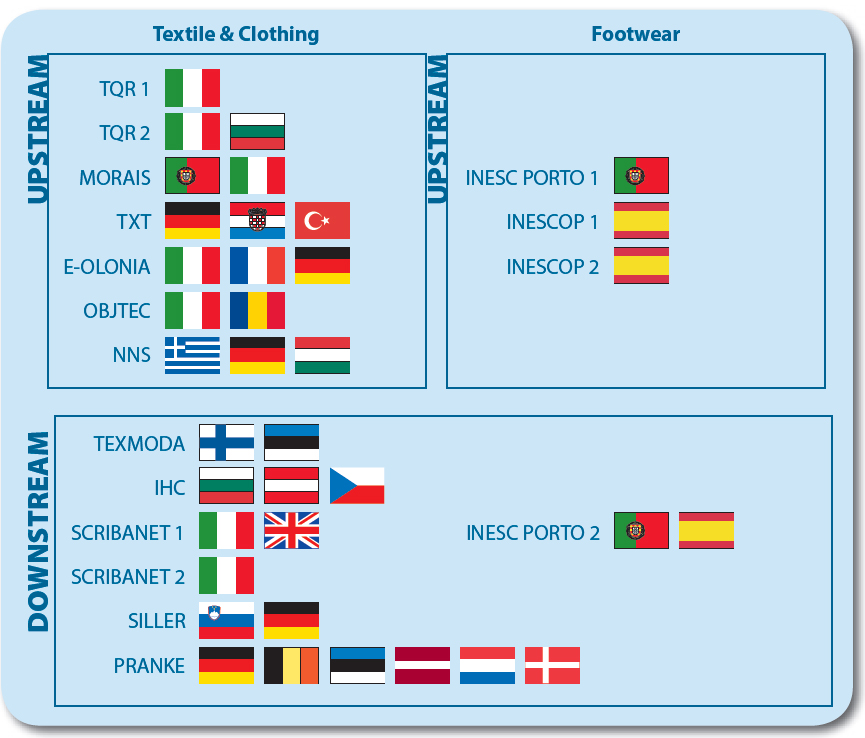![[PREVIOUS]](/ebiz/images/but_previous.gif)
![[INDEX]](/ebiz/images/but_up.gif)
![[NEXT]](/ebiz/images/but_next.gif)
![[PRINT]](/ebiz/images/but_print.gif)
|
Summary of the eBIZ-TCF Pilot Projects
|
The eBIZ-TCF pilot projects demonstrated the validity of the reference architecture, the inter-operability of different systems and the value of exchanging data in improving response times through the use of actual data. They were conducted in two phases, the first running from July to October 2008 and the second running from February until September 2009. First phase: There were four pilots in the first phase, these were limited in scope but involved actual business cases with real business benefits and were designed to demonstrate the validity of the draft Reference Architecture, particularly with regard to interoperability between systems. The eBIZ-TCF project team gained valuable lessons about addressing management and technical aspects of cooperation with future pilots, particularly with companies having low or no e-Business knowledge
Second phase: Most of the pilots in the second phase featured cross-border partnerships and extended networks of companies. They were selected following a public Call for Interest for Phase 2 pilots or for extensions to successful first phase pilots which resulted in the submission of twenty-one Expressions of Interest. This confirmed the heightened level of interest created by the first pilots and thirteen were eventually selected after taking into account compliance of the proposals to the project objectives and budget constraints.
Overall, therefore, there were seventeen pilot projects in eBIZ-TCF, all of which were designed to demonstrate the validity of the draft Reference Architecture, particularly with regard to interoperability between systems. They involved partners from 20 countries (18 EU member states plus Serbia and Turkey)  Summary of pilots Pilots were successfully implemented involving a total of over 150 organisations:
There were only limited deviations from the original partnership frameworks and these were generally due external factors. For example, in a few pilots, some partners were either hit by the financial crisis or underwent strategic or ownership changes. In almost all cases, partners who withdrew were promptly replaced by others who were interested in the project. This fact, provides a valuable indicator of the interest shown in the eBIZ-TCF project. No major problems were found with the technical specification of the architecture but there were some concerns from downstream pilots regarding the coding and numbering systems (product classification, product identification and location identification). As a result, much clearer guidelines have been given in the final version of the architecture on their deployment. |
![[PREVIOUS]](/ebiz/images/but_previous.gif)
![[INDEX]](/ebiz/images/but_up.gif)
![[NEXT]](/ebiz/images/but_next.gif)
![[PRINT]](/ebiz/images/but_print.gif)
|







